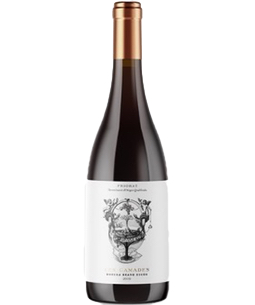Appellation: Priorat
Region: Catalonia
Country: Spain
Color: Red
Varietal(s): 45% Carignan, 40% Grenache Noir, 8% Merlot, 4% Cabernet Sauvignon, 3% Syrah
About The Producer
Bodega Bravo Escós, founded by Luis Bravo, is located in the heart of the Priorat, near Torroja del Priorat. The estate’s untamed beauty is sculpted by rock formations covered by volcanic soil containing slate, ash, and mica, better known as llicorella. Winemaker Pep Aguilar harnesses the natural elements, using pure and innovative techniques to bring out the best of the indigenous grapes Garnacha and Cariñena, and international varieties of Syrah, Cabernet Sauvignon, and Merlot. Recognizable for the famous Priorat richness of flavor and depth, the wines of Bravo Escós have a modern sensibility with refinement, freshness, and intensity. The wines balance power and elegance, resulting in the interesting and surprising tension that rewards with an easy and subtle taste. Bodega Bravo Escós has applied for Organic certification.
Terroir & Vineyard Practices:
"Les Camades is the local name given to several distinct plots of older vines."
The grapes for Les Camades are sourced from old-vines planted 30+ years ago that grow in selected plots outside of the village of Torroja del Priorat. The unique terrain is composed of brown slate soils mixed with clay-limestone and alluvium soils. mixed soils with a base of slate and clay. The Bodega uses sustainable farming practices.
Tasting Notes
Les Camades is everything you expect from a classic Priorat. The wine is cherry red with blue edges. It has notes of black and red fruits on the nose, such as blackberries, wild strawberries, and black plum, followed by regional aromatic herbs, such as lavender, rosemary, and thyme, with sweet spices. The wine is fresh and round on the palate, with a mature tenacity that fills the mouth, making it meaty and juicy. It combines delicate spicy notes with a strong mineral expression. The acidity guides you towards the long finish. Overall, the wine creates an impression of freshness and warmth like a midsummer escapade.
Vinification
Spontaneous fermentation with native yeasts occurs in small tanks. The must undergoes maceration for 6 to 14 days, then is it slowly pressed. Subsequent aging occurs in 500 L terracotta vessels and 225 L French oak barrels for 14 months.

